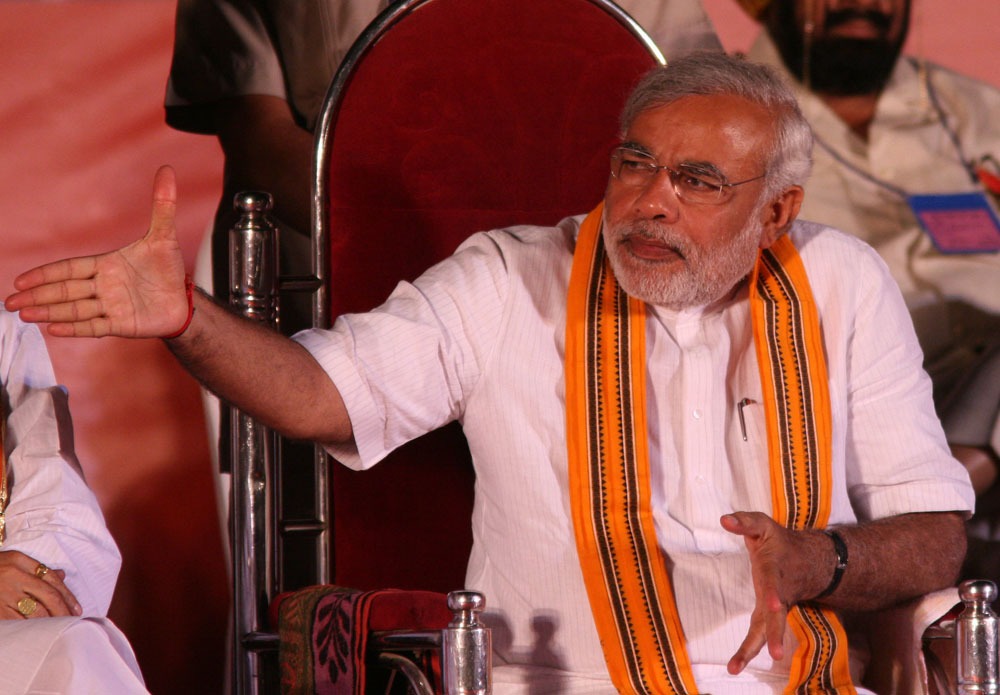
September 20, 2019; New York Times and NPR, “Goats and Soda”
To receive an award is to be recognized, applauded, congratulated, and nodded at with distinction. Everyone loves prizes, and our sector is no different, whether it comes to philanthropies or nonprofit associations. Achieving such recognition should be a sign of excellence in positive transformational social change. Well, it is supposed to be, at least.
Unsurprisingly to many humanitarian and social justice advocates in the Global South, the tone-deaf Western philanthropic giant, the Bill & Melinda Gates Foundation, are bestowing their Goalkeepers Global Award for 2019 upon “The Butcher of Gujarat,” Indian Prime Minister Narendra Modi, a known supporter of stripping citizenship of an entire people in Assam and exerting further humanitarian (some report genocidal) calamities in Kashmir.
The Goalkeepers Global Awards launched in 2017. It did so with the likes of American president Barack Obama, Canadian prime minister Justin Trudeau, and Pakistani social justice advocate Malala Yousafzai. The philanthropy’s website notes that laureates of their awards should be “leaders who take a stand on the issues they care about and innovate in their communities to achieve the Global Goals.”
We need people everywhere to raise their voices, help build awareness of the Global Goals, and hold their government leaders accountable for progress…
What happens when the so-called leaders they choose to recognize have a verifiably abysmal human rights record?
As reported by the Guardian, the New York Times, and Al Jazeera English, despite the petitions signed and the widespread global dismay—including from South Asians—of this American philanthropy’s 2019 awardee, Modi received this award yesterday, September 23rd, while in the United States. The award, according to the Foundation, is to serve as recognition for Modi’s government support of his “Clean India Campaign”—the Swachh Bharat Mission, which reportedly saw 95 million toilets built to reduce the open defecation practices of 40 percent of the population, improving the sanitation, health and hygiene practices of approximately 500 million people.
However, as reported in NPR, a 2017 report from the UN’s Human Rights Office of the High Commissioner found “some aggressive and abusive practices” in the implementation and execution phase of the campaign, with authorities forcing people to stop practicing open defecation via threats, revocation of food ration cards, denial of electricity services, and public shaming and harassment. In addition, “in some ‘open defecation free’-certified areas, elderly people reported they still practiced open defecation because they preferred it. And only 61 percent of schools in 2016 had available and usable girls’ toilets, even though the government reported that it had built separate toilets for girls and boys in every school from 2014 to 2015.”
Sign up for our free newsletters
Subscribe to NPQ's newsletters to have our top stories delivered directly to your inbox.
By signing up, you agree to our privacy policy and terms of use, and to receive messages from NPQ and our partners.
While the intent is to recognize the overall achievement of the campaign, as a humanitarian award, selectively rewarding doesn’t work, as it also legitimizes oppressive and authoritarian policies of Modi’s government.
As the New York Times reported, the opposition Congress Party’s Sanjay Jha criticized rather succinctly in a Twitter post the decision to give Modi the award.
Why are we making a hullabaloo about @BillGates giving an award to PM Modi?
History tells you that Big Business will always support political establishments wherever it suits their shareholder value. It’s pure algorithm of money.
Just look at India Inc. ?
— Sanjay Jha (@JhaSanjay) September 17, 2019
For future social justice and human rights defenders who are nominated or awarded for the Goalkeepers Global Award, in some ways, it will become a personal question of deciding whether one wishes to stand shoulder-to-shoulder with such company.—Niduk D’Souza













